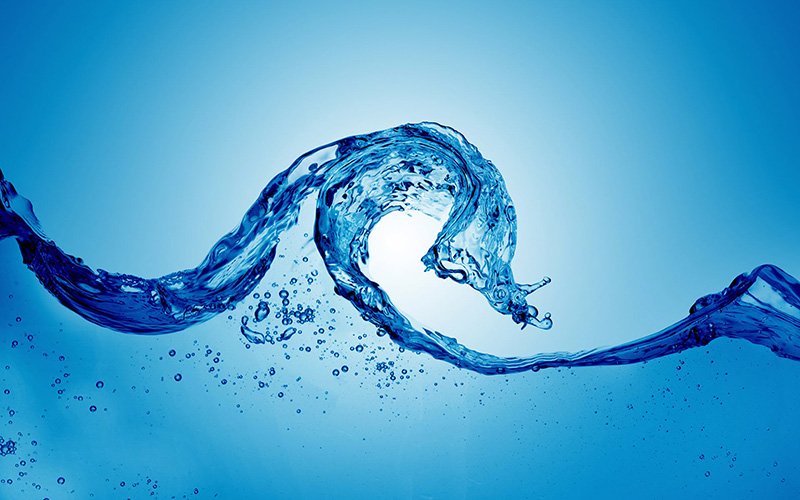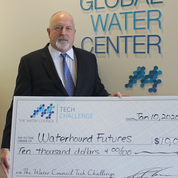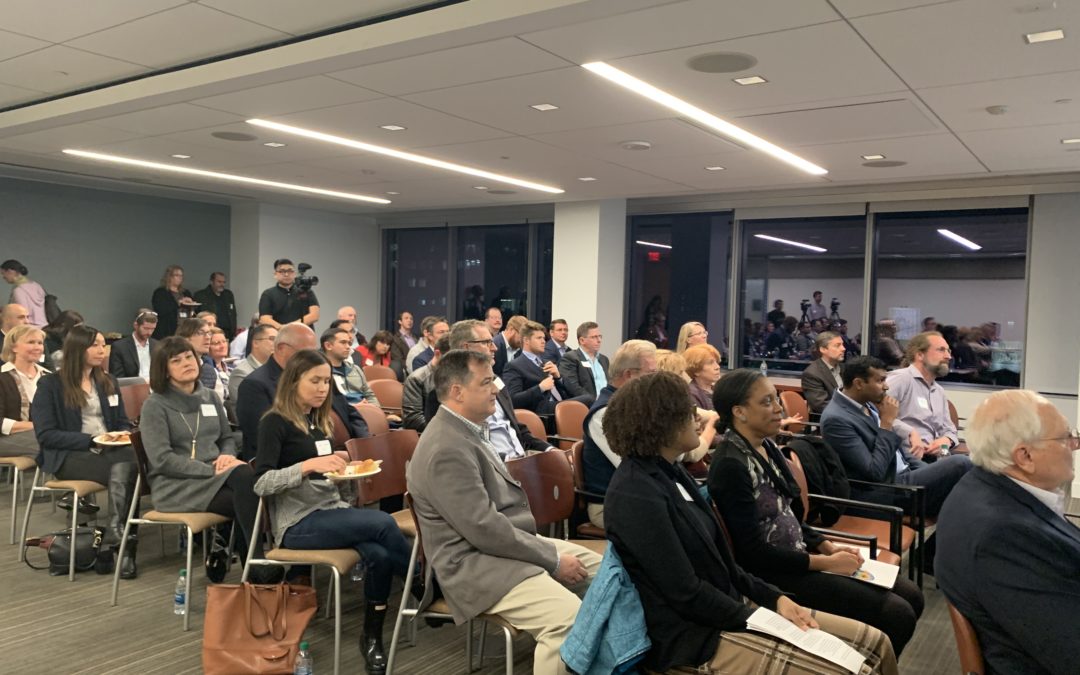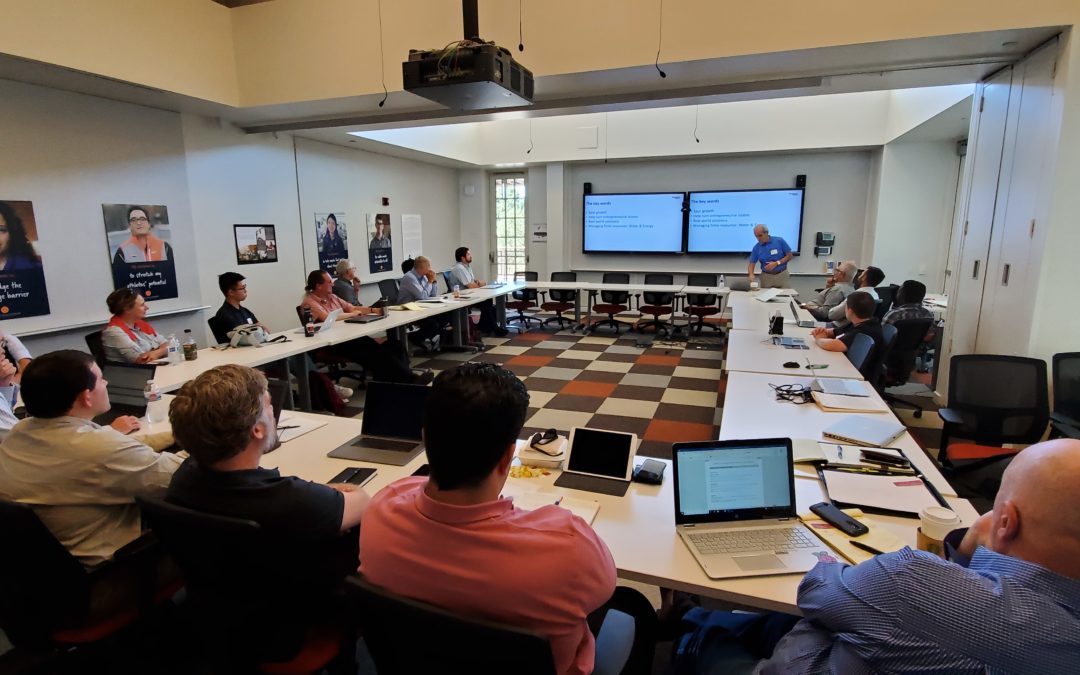
Congratulations Waterhound Futures and VerifiH20!
Congratulations to Waterhound Futures and Verifi H2O, who both took the top prizes at The Water Council’s Tech Challenge. Both completed CleanStart’s CEO Crash Course last fall.
Both got recognized for being leaders innovating water technology claiming the top prize money. The recognition is well deserved.

A. O. SMITH CORPORATION, BADGER METER AND ZURN INDUSTRIES SELECT TWO OUTSTANDING WATER TECHNOLOGY INNOVATIONS AMONG 22 APPLICATIONS FROM NINE COUNTRIES
MILWAUKEE, Wis. (January 27, 2020) – The Water Council, with its supporting corporate sponsors, has announced the winners for the second round of the Tech Challenge. This round focused on Innovative solutions for inline sensors that detect water quality parameters and artificial intelligence for pipe networks and systems.
The Tech Challenge program augments corporate open innovation channels and identifies emerging freshwater technologies and ideas with a high potential for commercialization. Throughout the year, several topics of interest are identified by corporate sponsors, which are then posted as open Tech Challenges and promoted globally. Selected finalists have an opportunity to meet in-person with sponsors for a chance to win prize money, gain access to corporate R&D resources and potentially partner with a corporate sponsor on the development of the technology or idea.
“This round attracted 22 applications from nine countries, of which 80 percent weren’t already on the radar for our sponsor companies,” said Karen Frost, vice president of economic development at The Water Council. “That is exactly what the Tech Challenge is designed to do for our sponsors – build pipeline.” The innovations chosen as Tech Challenge winners are:
Verifi H2O – An innovative water-monitoring platform delivering real-time water quality surveillance systems based on proprietary, advanced material technologies that rapidly detect pathogens and other contaminants, while providing customers with reliable information to make time-sensitive decisions.
Waterhound Futures – A predictive modelling and analytics solution, which simulates water and wastewater treatment plants to provide actionable insight to operators, engineers and management.
Commenting on the value of the program, “Badger Meter owes its success to a long history of water technology innovation,” noted Dan Fellers, manager, research & development at Badger Meter. “We are confident the quality and diversity of ideas that flow from the Tech Challenge will help fuel the solutions of tomorrow.”
The Tech Challenge is designed to build additional pathways for corporate R&D teams beyond conventional channels. Rebecca Tallon, engineering director – water treatment at A. O. Smith Corporation, adds, “Our participation in the program widens our access to innovators who have ideas but haven’t explored marketing their solutions through traditional channels yet, so it’s been a valuable way to extend our R&D efforts for innovations that would have taken much longer to find on our own.”
In addition to augmenting R&D pathways, the Tech Challenge program also drives deal flow opportunities in targeted topics of interest. “AI is an emerging topic, so we’re interested in innovations in that specific area as part of our connected products strategy,” said Glen Trickle, director of engineering at Zurn. “This Challenge, we were pleasantly surprised by the volume of qualified AI applications, along with other solutions that we’re continuing to explore.”
Tech Challenge applications were accepted from Sept. 6 – Nov. 3, 2019. The next round of Tech Challenge topics will be announced March 2020.
About A. O. Smith
A. O. Smith Corporation, with headquarters in Milwaukee, Wis., is a global leader applying innovative technology and energy-efficient solutions to products manufactured and marketed worldwide. The company is one of the world’s leading manufacturers of residential and commercial water heating equipment and boilers, as well as a leading manufacturer of water treatment products.
About Badger Meter
Badger Meter is a leading innovator, manufacturer and marketer of flow measurement and control products, serving water and gas utilities, municipalities and industrial customers worldwide. Measuring a variety of liquids — from water to oil and lubricants in commercial processes — products from Badger Meter are known for accuracy, durability and the ability to provide valuable and timely measurement information. For more information, visit www.badgermeter.com.
About Zurn Industries
Zurn Industries, LLC, a Rexnord company, is a recognized leader in commercial, municipal, healthcare and industrial markets. Zurn offers the largest breadth of engineered water solutions, including a wide spectrum of sustainable plumbing products. Zurn delivers total building solutions for new construction and retrofit applications that enhance any building’s environment. For more information, visit Zurn.com or RexnordCorp.com.
About The Water Council
Headquartered in Milwaukee, Wisconsin, USA next to the world’s largest freshwater system and home to one of the most influential freshwater technology hubs in the world, The Water Council (TWC) is recognized as a global center for advancing water technologies and stewardship. At its heart, TWC is a non-profit, membership organization that connects, convenes and showcases the hub comprised of more than 238 water technology businesses and the diverse water leadership network of 200 members it is linked to from around the world. While TWC’s mission is centered on driving economic development, attracting and connecting world-class talent and supporting water-focused technology innovation, its larger goal is to help secure freshwater resources for the world by driving solutions to the numerous industries that need and use a large amount of water. Learn more by visiting www.thewatercouncil.com.





